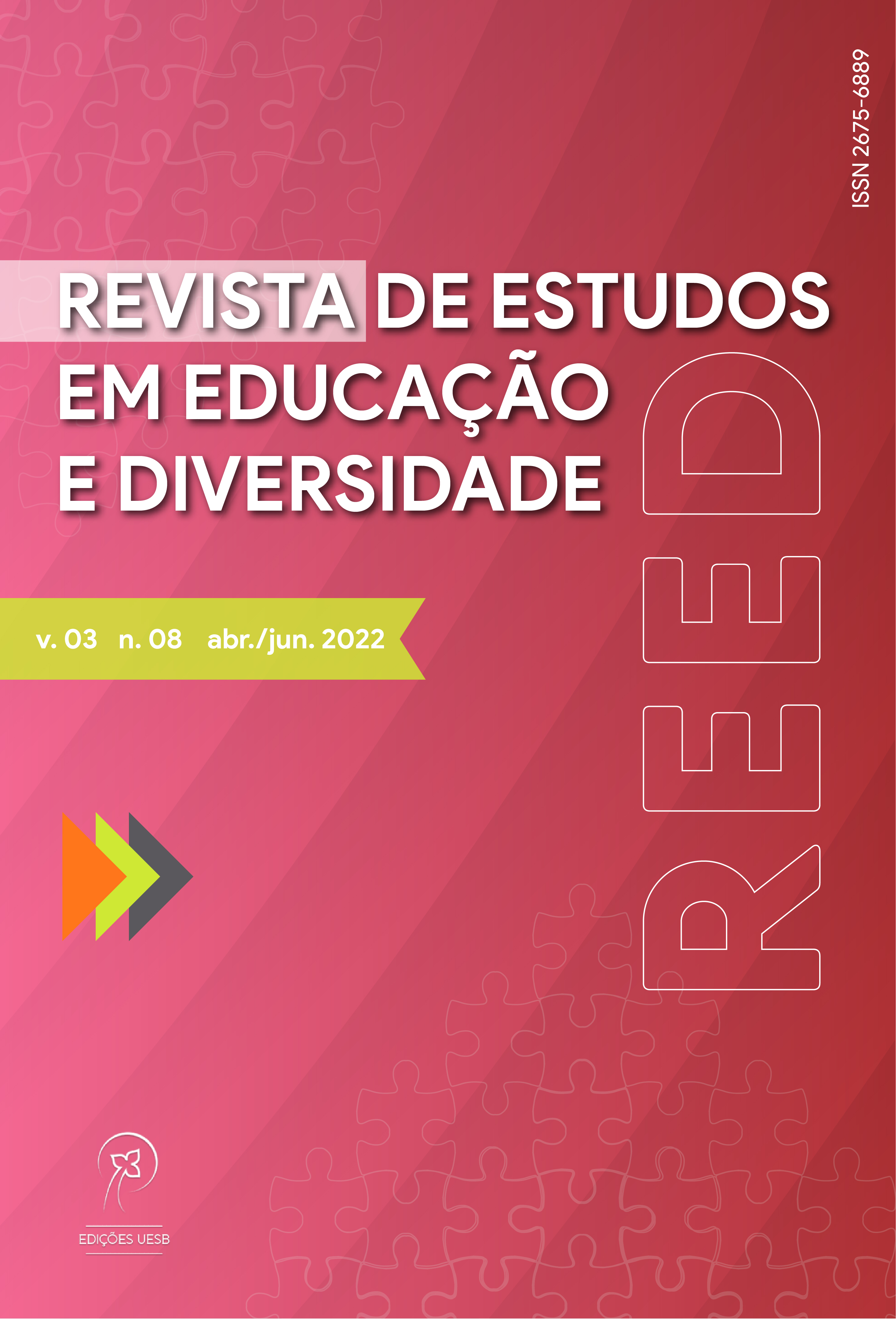THE ART OF KNOWING AND DOING IN THE INVENTION OF EVERYDAY LIFE FOR THE EMPOWERMENT OF A STUDENT WITH HIGH SKILLS/SUPERGUNDANCE
DOI:
https://doi.org/10.22481/reed.v3i8.10186Keywords:
(Auto)biographical narratives, (Auto) formacion, Specialized Educational Services, High Abilities/Giftedness, EmpowermentAbstract
This research aims to understand how the art of knowing and doing in the invention of everyday life contributes to the empowerment of a student with high abilities/giftedness (AH/S). It is a qualitative approach research. We used as an investigation method the (auto)biographical research through the narratives of a student with AH/S. The results indicate that the research subject appropriates, socializes, discusses, weaves and reflects the knowledge related to the contexts of (auto) formation, such as family (parents, sisters, cousins, grandparents); school (managers, pedagogical support, teachers, students); Regional Center for Special Education of Mossoró/RN - CREE-MOS (pedagogical team of special education, diversity and events); virtual (learned new and different knowledge); professional (in interaction with others and in different spaces); research (auto)biographical sessions with the researcher) and all this complex network of relationships that weave daily life and condition not only being a cognitive subject, but also a cultural, social and emotional subject that pulses, breathes, thinks and does. The narratives of the lived, experiences reveal their empowerment and provide reflections on how the inclusion of students with AH/S happens, based on a look at diversity, fundamental for the realization of democratic and emancipatory practices.
Downloads
References
BAQUERO, Rute Vivian Ângelo. Empoderamento: instrumento de emancipação social? Uma discussão conceitual. Revista Debates, Porto Alegre, v. 6, n. 1, p. 173-187, jan/abr. 2012.
BOGDAN, Robert; BIKLEN, Sari. Investigação qualitativa em Educação: fundamentos, métodos e técnicas. In: BOGDAN, Robert; BIKLEN, Sari. Investigação qualitativa em educação: uma introdução à teoria e aos métodos. Portugal: Porto Editora, 1994, p. 15-80.
BRASIL. Presidência da República. Casa Civil. Subchefia de Assuntos Jurídicos. Lei nº 12.796, de 4 de abril de 2013. Altera a Lei nº 9.394, de 20 de dezembro de 1996, que estabelece as diretrizes e bases da educação nacional, para dispor sobre a formação dos profissionais da educação e dar outras providências. Diário Oficial [da] República Federativa do Brasil, Brasília, DF, 5 abr. 2013.
CERTEAU, Michel de. A invenção do cotidiano: 1, Artes de fazer. Petrópolis: Vozes, 1994.
FREIRE, Paulo. Pedagogia da autonomia: saberes necessários à prática educativa. 8. ed. São Paulo: Paz e Terra, 1996.
FREIRE, Paulo; SHOR, Ira. Medo e Ousadia: O Cotidiano do Professor. Tradução de Adriana Lopez. Rio de Janeiro: Paz e Terra, 1986.
FREIRE, Paulo. Conscientização: teoria e prática da libertação- uma introdução ao pensamento de Paulo Freire. São Paulo: Centauro, 2001.
GOHN, Maria da Glória. Empoderamento e participação da comunidade em políticas sociais. Revista Saúde e Sociedade, São Paulo, v. 13, n. 2, p. 20-31, maio/ago. 2004.
JOSSO. Marie-Christine. Experiência de vida e formação. 2. ed. rev. e amp. Natal, RN: EDUFRN, São Paulo: Paulus, 2010.
RENZULLI, Joseph Salvatore. O que é esta coisa chamada superdotação, e como a desenvolvemos? Uma retrospectiva de vinte e cinco anos. Educação. Tradução de Susana Graciela Pérez Bezerra Pérez. Porto Alegre-RS, ano XXVII, n. 1, p. 75-131, jan./abr. 2004.
Downloads
Published
How to Cite
Issue
Section
License
Copyright (c) 2022 Revista de Estudos em Educação e Diversidade - REED

This work is licensed under a Creative Commons Attribution 4.0 International License.
You are free to:
Share - copy and redistribute the material in any medium or format; Adapt - remix, transform, and build from the material for any purpose, even commercially. This license is acceptable for Free Cultural Works. The licensor cannot revoke these freedoms as long as you follow the terms of the license.
Under the following terms:
Attribution - You must appropriately give credit, provide a link to the license, and indicate if any changes have been made. You may do so in any reasonable way, but not in a way that suggests that you or your use is endorsed by the licensor.
There are no additional restrictions - You cannot apply legal terms or technological measures that legally restrict others to make any use permitted by the license.






